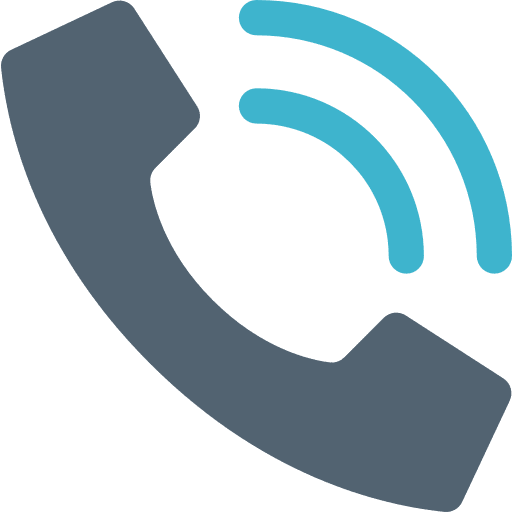Do You Have a Dental Emergency?
Dental emergencies can happen to anyone at any time. Whether it’s a severe toothache, a chipped or broken tooth, or a knocked-out tooth, knowing what steps to take to manage the situation and minimize any damage is essential.
Here, we’ll go over common types of dental emergencies, steps to take in a dental emergency, prevention and preparation tips, and when to seek immediate medical attention.
Common Types of Dental Emergencies
1. Severe Toothache
Various factors, including tooth decay, gum disease, or an abscessed tooth, can cause a severe toothache. It can be excruciating and debilitating, making it challenging to eat or even speak.
2. Chipped, Cracked, or Broken Tooth
A chipped, cracked, or broken tooth can occur due to trauma, biting down on complex objects, or decay. It can cause pain and sensitivity, making it challenging to chew or speak.
3. Knocked-Out Tooth
A knocked-out tooth is a dental emergency that requires immediate attention. If the tooth is re-implanted within 30 minutes, it has the best chance of survival.
4. Loose Tooth
A loose tooth can be caused by an injury or gum disease. It’s crucial to seek dental attention immediately to prevent further damage or tooth loss.
5. Lost Dental Filling or Crown
A lost dental filling or crown can cause pain or sensitivity, making it challenging to eat or drink. Seeing a dentist as soon as possible is essential to avoid further damage or infection.
6. Abscess or Infection
An abscess or infection can cause severe pain, Swelling, and fever. It’s crucial to seek immediate dental attention to prevent the disease from spreading to other body parts.
7. Soft Tissue Injury (Lips, Gums, Tongue)
A soft tissue injury can occur due to trauma or biting down on complex objects. It can cause bleeding, Swelling, or pain, making it challenging to eat or speak.
Steps to Take in a Dental Emergency

Assess the Situation and Remain Calm
Assess the situation to determine the severity of the dental emergency. Try to remain calm and avoid panic, which can worsen the situation.
Call Your Dentist or Emergency Dental Service
Call your dentist or emergency dental service as soon as possible to schedule an appointment or seek immediate attention.
Manage Pain and Discomfort
To manage pain and discomfort, use over-the-counter pain relievers, such as ibuprofen or acetaminophen. Avoid aspirin, as it can increase bleeding.
Preserve Any Knocked-Out Teeth
If you have a knocked-out tooth, preserve it by keeping it moist. You can place it in milk or saliva until you see a dentist.
Apply Cold Compress to Reduce Swelling
To reduce Swelling, apply a cold compress, such as a bag of ice wrapped in a towel, to the affected area.
Rinse with Warm Salt Water
Rinse your mouth with warm salt water to reduce pain and prevent infection.
Use Dental Wax for Temporary Relief
If you have a chipped or broken tooth, use dental wax to cover any sharp edges or areas that may cause discomfort.
Prevention and Preparation for Dental Emergencies
Maintaining good oral health is crucial for preventing dental emergencies and ensuring overall well-being. Here are some essential practices to incorporate into your routine to minimize the risk of dental issues and be prepared for any emergencies that may arise:
Regular Dental Check-Ups
Make it a habit to schedule regular dental check-ups with your dentist. These routine visits help prevent dental emergencies and allow your dentist to detect potential issues before they escalate into more severe problems.
Embrace Good Oral Hygiene Habits
Good oral hygiene prevents tooth decay, gum disease, and other health issues. Remember to brush your teeth at least twice a day using fluoride toothpaste, floss daily to remove plaque and food particles from between your teeth, and rinse with an antimicrobial mouthwash to further reduce bacteria in your mouth.
Protective Gear for Sports
Wearing a mouthguard is essential if you participate in sports or activities that pose a risk of dental injury, such as football, hockey, or martial arts. A well-fitted mouthguard can help cushion blows to the face and protect your teeth from trauma.
Avoid Chewing on Hard Objects
Be mindful of what you chew on to avoid dental emergencies caused by cracked or broken teeth. Refrain from chewing on complex objects like ice cubes, popcorn kernels, or hard candy, as they can easily chip or fracture your teeth.
Keep the Dentist’s Contact Information Accessible
Having quick access to your dentist’s contact information is crucial in a dental emergency. Store their phone number on your phone and keep it handy in your wallet or purse so that you can reach out for assistance promptly when needed.
Prepare a Dental Emergency Kit
Assemble a dental emergency kit containing essential items that can provide temporary relief and aid until you can see your dentist. Include over-the-counter pain relievers, dental wax to temporarily cover the sharp edges of a broken tooth or orthodontic appliance, gauze to control bleeding, and contact information for your dentist or an emergency dental service.
By incorporating these preventive measures into your daily routine and being prepared with an emergency kit, you can significantly reduce the likelihood of experiencing a dental emergency and ensure prompt care in case one occurs. Remember, proactive dental care is critical to maintaining a healthy and beautiful smile for years.
When to Seek Immediate Medical Attention
a. Severe Bleeding
If you experience severe bleeding, seek immediate medical attention.
b. Difficulty Breathing or Swallowing
If you experience difficulty breathing or swallowing, seek immediate medical attention.
c. Trauma to the Face or Jaw
If you experience trauma to the face or jaw, seek immediate medical attention.
d. Signs of Serious Infection (High Fever, Swelling)
If you experience signs of severe infection, such as a high fever or Swelling, seek immediate medical attention.
Dental emergencies can be stressful and painful, but knowing what steps to take can help minimize the damage and alleviate discomfort. Remember to stay calm, call your dentist or emergency dental service, manage pain and discomfort, preserve knocked-out teeth, apply a cold compress, rinse with salt water, and use dental wax for temporary relief. Practice good oral hygiene, wear mouthguards for sports, avoid chewing complex objects, keep your dentist’s contact information handy, and prepare a dental emergency kit. If you experience severe bleeding, difficulty breathing or swallowing, trauma to the face or jaw, or signs of severe infection, seek immediate medical attention.
Contact Suburban Essex Dental in West Orange, NJ, for an emergency. Dr. Paul Feldman is consistently rated a Top Dentist in New Jersey year after year.







